Weekly Manohar was once the favourite of forward-thinking, young activists in Maharashtra. The weekly ran a feature once every month, in which readers interviewed a person of high repute in their respective field. At the beginning of the month, the name of the interviewee was announced, and queries were invited. The queries were relayed to the interviewee in the next two weeks. In the last week, the questions and answers were published in Manohar. The queries came from every corner of the state. There were tough questions and tricky questions, and questions that made you think. The personality of the month would thus be put through a rigorous test of wit, wisdom, and lexicon.
In the month of August 1973, the guest of honour was 41-year-old Hamid Dalwai, well-known to Maharashtra by then as a writer and reformer. His interview that month became a showcase for Hamid bhai's frank personality, fearless and rational analysis, clarity of vision, and delectable debating skills. It still makes for a must-read today, on his 43rd memorial day.
Megha Golvalkar (Dadar): What ideological differences do you have with the Bhartiya Jansangh?
- I am against their goal of cow slaughter ban. I believe the new social construct should be based on individual independence and equality. I think we should remove the terms ‘Hindu’ & ‘Muslim’ from the monikers of Benares and Aligarh universities. I believe women should have equal rights as men and therefore I have been campaigning for a uniform civil code. I think family planning should be mandatory for all regardless of religion. In short, I want the governance of the nation to be based on economic and social considerations and not religious ones. You can easily examine the manifesto of the Jansangh and it will be evident what their perspective regarding this is. I think this will answer your question regarding our ideological differences.
Ashok Parab (Jogeshwari): What is your opinion regarding inter-caste marriage?
- People should have the liberty to marry whoever they want to. Marriage is entirely a question of personal choice and right and nobody should interfere with it.
Ramesh Udare (Mumbai): Does the Quran say, ‘Destroy the idol worshippers’?
- No the Quran does not say so. It does however prescribe to tax the idol-worshippers (in order to harass them). The tax known as ‘Jizia’ arose from this scripture. Actually, it is essential to focus on societal relationships today, than reading too much into ancient religious texts. Not just the Quran, but most religious texts are unfair to minorities. The Manusmruti, for instance is not too kind on women and lower castes, is it? Now, we don’t live as per the rules of the Manusmruti nor the Quran today. Indian society today needs to be based on equality of all individuals. This needs to be realised by both Hindus & Muslims.
Prakash Bhagwat (Yavatmal): Who is primarily responsible for the communal riots?
- Communal riots are quite often incited by Muslims and often by Hindus.
A. R. Kasture (Gultekdi): How are the relations of Muslims outside India with the non-Muslims there?
- In some places they are good, in some places bad. For instance, in Indonesia, Christians, Buddhists and Hindus are all minorities. But there are no communal tensions there. Similarly, there are no problems in Turkey, Tunisia, Malaysia, Lebanon etc. However, in some Arabic countries non-Muslims are persecuted. In some countries like Pakistan and Bangladesh, the condition of minorities has improved now.
Mahadev Kokate, Chandrakant Dharmadhikari (Andheri): With increasing numbers of communal-minded Muslims, don’t you think there are chances they’ll ask for another partition of the nation?
- I don’t think we need to worry too much about the demands of communal Muslims. They can very well ask for a separate nation in Bhendi Bazaar. But we can safely assume that these demands will never be taken seriously. For one, now there is no external power to partition our nation again, and second, there are no contiguous Muslim majority areas to constitute such a nation.
Mohd. Sami Contractor (Aurangabad): Do you consider yourself Muslim? What are your opinions about namaz, roza, quran & akhirat?
- I don’t practice namaz or roza. I don’t believe that the Quran was God’s own creation. It was written by Mohammed. By consequence, I don’t believe in akhirat. And yet, I consider myself a Muslim, because I was born in Muslim society. Nehru was an atheist and yet he was a Hindu; similarly I am a Muslim. I don’t believe in restrictive definitions of being Hindu or Muslim. I think it is a much wider concept.
Bal Jambhekar (Vasai): Who is your political teacher? Do you have bodyguards like Bal Thackeray?
- I am my own teacher. And I can’t afford bodyguards.
Gulam Ahmed (Aurangabad): Only 10% of Muslims in Maharashtra speak Marathi. Why then, do you conduct your work entirely in Marathi?
- I beg to differ. 90% of Maharashtrian Muslims understand Marathi. In fact, very few Muslims in Maharashtra speak or understand Urdu. Even those who do supposedly speak Urdu only manage a broken version of it. Urdu speakers from Lucknow would have a paroxysm if they heard bizarre approximation of Urdu. Given this circumstance, I hope you understand why I conduct my work in Marathi.
Sudhirkumar Acharya (Kalyan): Do you find any assistance from your family in your social work?
- I do get a lot of support from my family in various ways. My wife works a full time job and therefore supports us financially. Without her doing this, I would not have been able to dedicate my time to social work.
Swamiprasad Pandit (Pimpri): Do you think a creative writer like you can find his footing in politics? Also, you are very capable fine writer, have you stopped writing?
- I feel, you should try to find answer to this question based on assessment as to how much I have been able to handle politics. Now a days, my mind doesn’t get sufficient time for fine writing. I feel bad about it. The very fact that I feel bad should give you solace for the time being.
Meenakshi Tatke (Pune): Whatever your personal religious views are- are those views agreeable to your family members?
- Not necessarily. I don’t insist upon everybody accepting my religious views. Nor should anybody impose their views upon me. I believe everyone is entitled to have their own religious beliefs. Therefore, in our house we have a democratic system wherein everybody enjoys his own differing opinion and everyone co-exists peacefully. I recommend everyone to try this system at their home.
Sheikh Siraj Ahmed (Samsherpur): Maority of Maharashtra’s Muslims stay in rural areas. Why have you established the Muslim Satyashodhak Samaj in a city then?
- I think most movements begin from cities and eventually spread to the villages. Our movement is very new and therefore only in cities now. It will, in due course find its way to the rural areas.
Sanjeev Pohekar (Buldhana): What will you do if you get a death threat from ‘Black December’?
- I will surely call you for help.
Arun Chavhan (Satara): Due to the tolerant attitude of Hindus, Muslims in India are living peacefully. Still, they have not integrated fully in Indian society. Why do you think that is?
- One would have to write a thesis on this subject. The separatist factions in Muslim society don’t allow the integration of Muslims, is the short version. It is to be noted that the Hindus have to keep up with progressive attitudes in order to be able to facilitate this integration.
Sudhakar Joshi (Jamner): Do you think the RSS is casteist?
- The RSS spokesperson has himself declared that it is a casteist organisation. This fact is also evident from their leaders’ speeches, writings and stands taken on various issues.
Vishwas Diggikar (Umarga): One rarely sees honest politicians who are financially stable. What are your means of income?
- According to the Muslim fundamentalists, I am funded by CIA, KGB, Christian missionaries, RSS, Jansangh, Prime Minister Indira Gandhi etc. According to Hindu factions, I am funded by Pakistani agents. The truth is that I work full time for the Indian Secular Society; the Society pays me a nominal salary. In addition, my wife works a full time job and we live a modest life in a tworoom flat in suburban Mumbai. I also get some money out of donations and advertisements for my writing. I hope I have convinced you regarding my sources of income.
Vyankatesh Ligade (Mumbai): Why can’t the Indira government implement Uniform Civil Code? Is it because they would lose the Muslim vote if changes were made in Sharia law?
- Your opinion about the Muslim vote bank is correct. The Congress leaders have stated that they will not be changing the law ‘right now’. This gives me hope that do intend to change the law sometime in the future. However, it is important to note that the current law in place is not Sharia law but ‘Muslim personal law’. There is no country apart from Saudi Arabia which actually follows Sharia law.
Dilip Kumar Patnekar (Chiplun): Hamidbhai, is the Muslim League a boon or curse for the Muslims?
- A curse! It is a curse not just to Muslims, but also Hindus and the rest of the nation.
Subodh Tharwal (Khed, Ratnagiri): Do you think Islam is the religion that upholds democracy and equality to the greatest degree?
- I don’t believe any religion promotes democracy or equality. Islam is no exception to this rule. Religions used spirituality to build civilisations; religion is a medieval concept. Democracy, freedom, equality are all modern concepts. It is important for people to recognise that modern society cannot be built on ancient concepts such as religion.
Digambar Pathak (Amravati): You always speak and write about Hindu-Muslim unity. But several recent incidents have shown that not even educated Indian Muslims are willing to show their affinity towards India. What is your opinion regarding this?
- I don’t know what to say regarding this. This is an issue I have personally brought up several times. It is my own opinion that educated Indian Muslims do not show affinity towards India as they should. You are asking me to opine on my own opinion! You deserve a literary ‘Nobel’ from ‘Manohar’ for asking me such a hilarious question!
Kshama Tawde (Mumbai): Muslim people are opposing family planning initiatives- is this not anti national?
- Several people are opposed to family planning fundamentalist Muslims, Catholics, Jansangh members, RSS, Shankaracharya, Acharya Vinoba Bhave. Are you suggesting that all these people are anti-national? Honestly, I believe initiatives such as family planning are for the benefit of the entire population and must be made mandatory for all. Similarly, I also think we have an excess amount of stray cattle and must take measures to reduce their numbers. Several economic and agricultural experts have recommended this. Despite this, do you think it is fair to further the agenda of cow protection? Is that not anti-national as well?
Vinod Tambre (Nashik): What do you think about the current status of Bangladesh?
- Bangladesh has recently gained independence and has faced a lot of destruction during their independence struggle. Due to this, there is great instability over there. Once, they structure their economy, there will be some political stability and I believe they will continue to have good relations with India.
Shamakant Kulkarni (Malegaon): Would you like to be a Hindu?
- I would like to draw your attention to the answer I gave to Mohd. Sami Contractor. I am Muslim by birth and Hindu by culture. I think rather than being Hindu or Muslim, I’d like to focus on being a good person. As stated before, I think religion is an ancient concept which is now obsolete.
Sulabha Bakre (Amravati): In your line of work, you must have to face failure, affronts and dissatisfaction regularly. In such difficult times, what do you rely upon to keep your mind fresh?
- I have never thought about this. You have raised an interesting question. I shall give it some thought.
Ravindra Afzulpurkar (Solapur): Apart from minority communities like Brahmins and Parsis, the policies of the government towards other minority communities are not secular but Muslim-appeasement. True or not?
- The ruling party is favouring the Muslims because of the vote bank, is the answer to your question, I believe.
Anil Chanakhekar: Apart from a few intellectual middle-class Muslims, it is nearly impossible to bring about a socio-cultural revolution in Muslim society. How are you working towards creating this revolution?
- The organisations established by me i.e. Muslim Satyashodhak Mandal is one such initiative to create intellectual leadership among Muslims.
Ganesh Parshuram Bavkar (Donivade): Are you not afraid to openly state your opinions before fundamentalist Muslims?
- If I were scared, I would not have entered this line of work.
(Originally published in Marathi weekly Manohar on 26th August 1973. Translated by Priyanka Prabhu.)
(Read original Marathi version of Hamid Dalwai's interview on Sadhana Archive)
Tags: Interview English Weekly Manohar Muslim Satyashodhak Mandal Muslim Reforms Islam Load More Tags

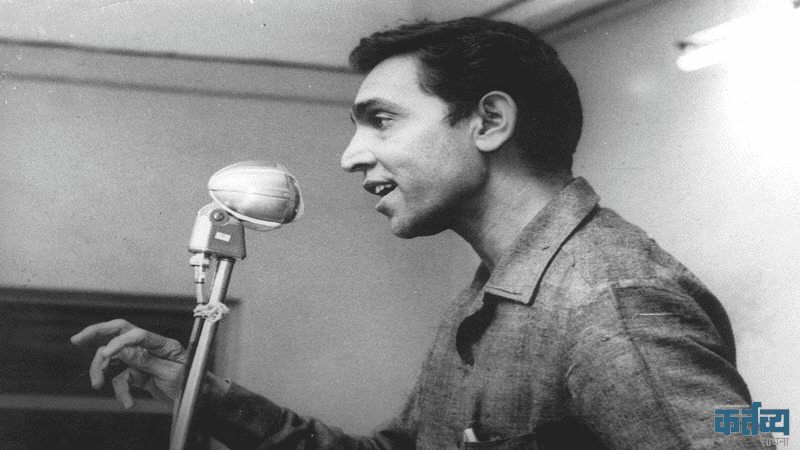

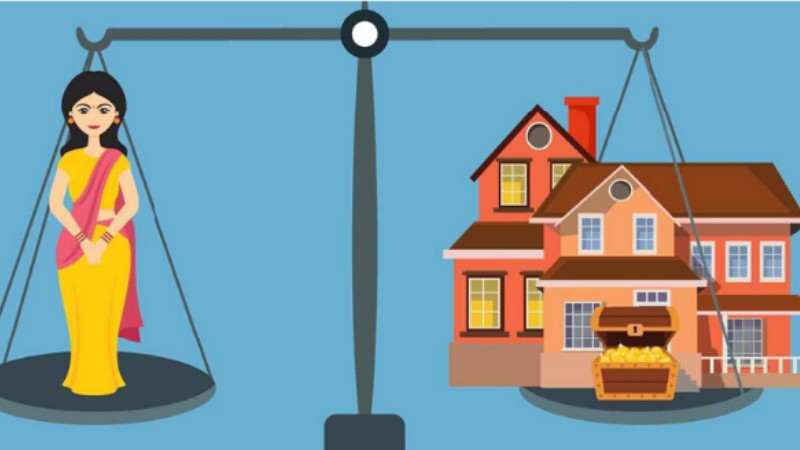
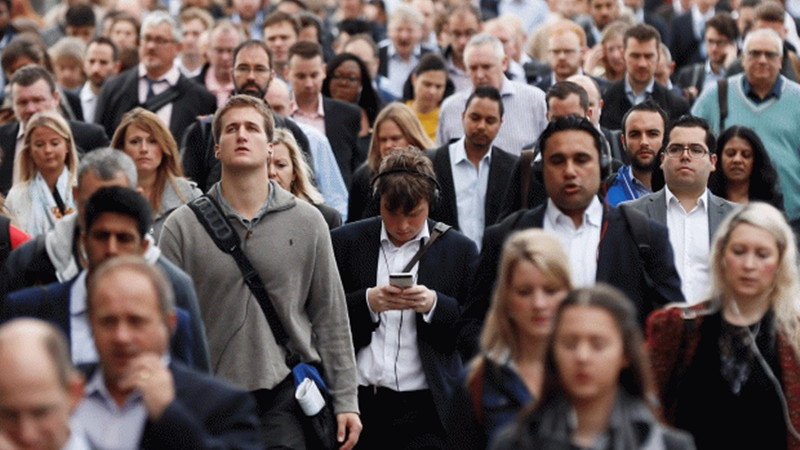
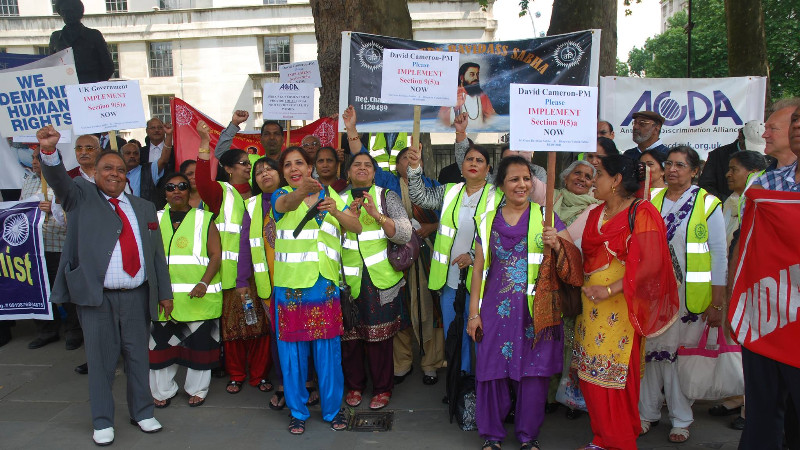
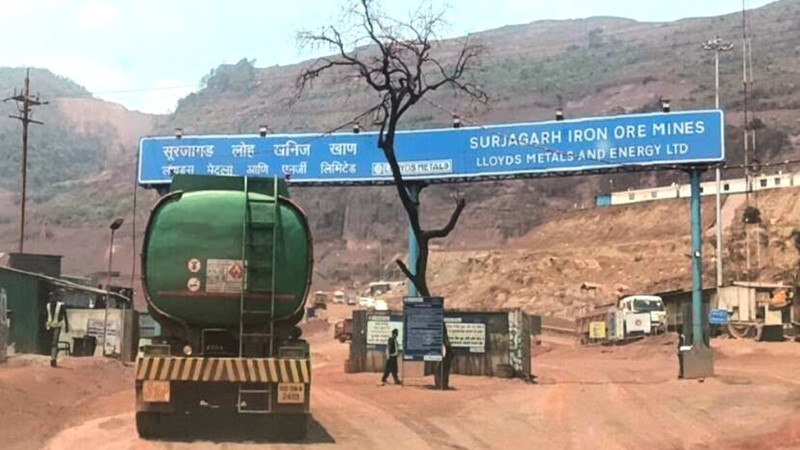
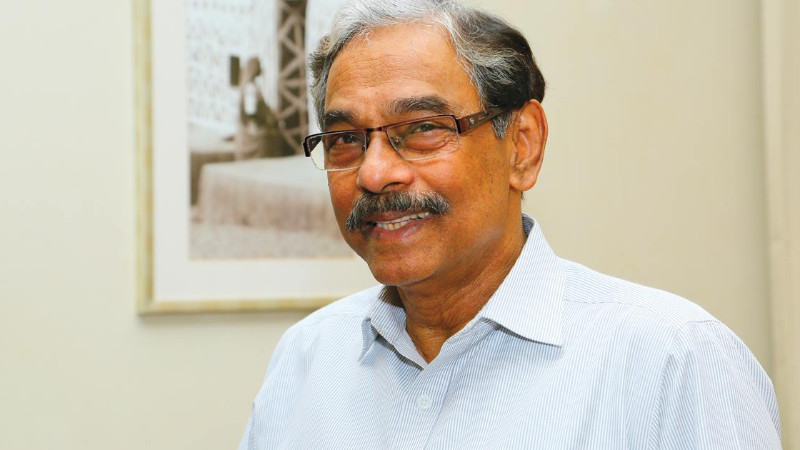
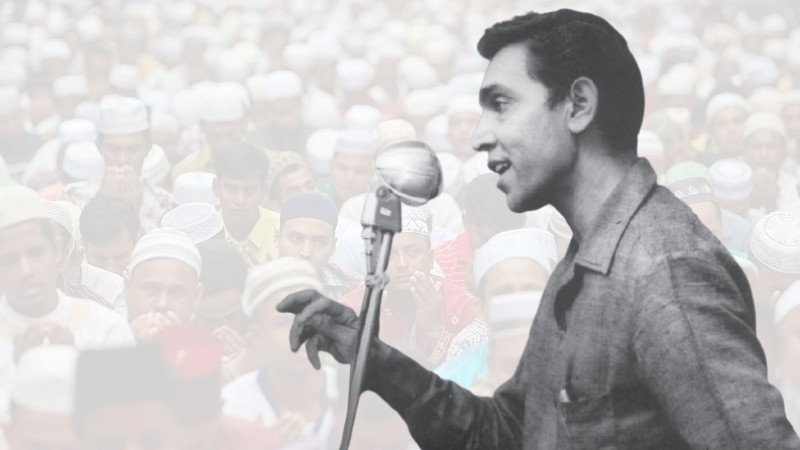
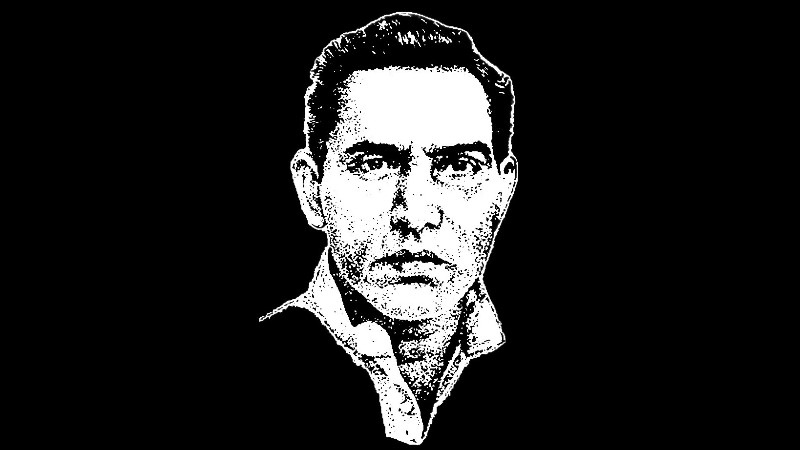
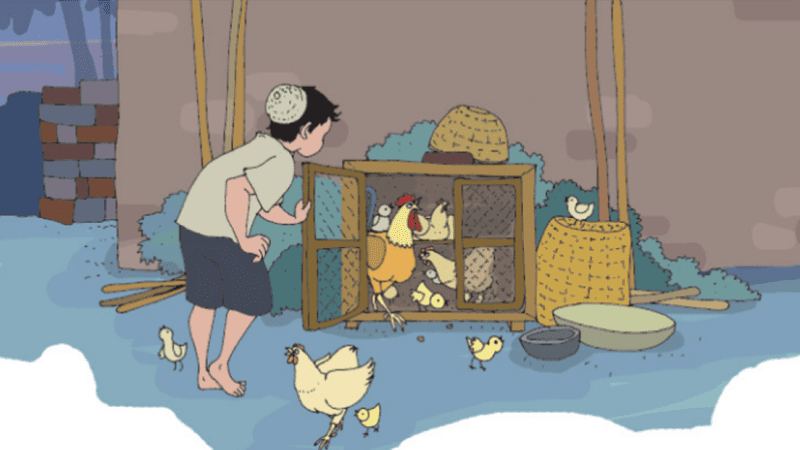

























Add Comment